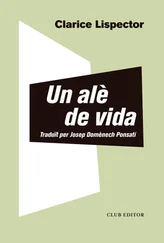When I think of the eager enjoyment with which we sit down to that Brazilian delicacy, chicken cooked in its own blood, I begin to realize how cruel we humans are. Personally, I could never kill a chicken for I adore watching them as they stretch their ugly necks and scratch for worms. So should we avoid eating chicken cooked in its own blood? Of course not. We must never forget that we are cannibals. We must respect our cruelty. For who knows, perhaps if we were to stop eating chicken cooked in its own blood, we might start devouring human beings instead. My cowardice about eating chickens, even if I am prepared to eat them once they have been cooked, leaves me puzzled and bothered, yet I accept it. Life is cruel. We are born in blood as the umbilical cord is cut. And so many human beings die shedding their blood. We must believe in blood as part of life. Cruelty. But also love.
Are we using our life or not when we fritter it away? What precisely am I trying to find out?
THE EXPEDIENTS OF A PRIMITIVE BEING
I once read that hysterical behaviour is a reaching out for liberation by means of wild gestures. Unaware of the movements needed to secure their release, animals become hysterical and lose all control. And in their frenzy they often discover the right gesture to gain their freedom.
This reminds me of the liberating advantages of a primitive existence which is purely emotional. However hysterical, the primitive person draws upon so many contradictory feelings that the one capable of bringing a sense of freedom finally comes to the surface, even if that person does not know it.
A MISCHIEVOUS LITTLE GIRL (I)
Whatever his previous occupation had been, he had abandoned it, changed his profession and drifted half-heartedly into teaching in a primary school: that was all we knew about him.
The teacher was burly, tall and silent, with rounded shoulders. He wore a jacket that was far too short and rimless spectacles, with a thin band of gold bridging his great Roman nose. And I was attracted to him. Not in love with him, but drawn by his silence and his self-control as he tried to teach us. Watching him conceal his impatience made me resentful. I started to misbehave in class. I talked in a loud voice, pestered my classmates and interrupted the lesson with silly jokes until the teacher, turning red in the face, would say:
— Be quiet or I’ll send you out of the room.
Wounded but triumphant, I would answer back defiantly: Send me out then! But he didn’t send me out, for that would have made him look foolish. I exasperated him so much that it had become painful for me to be an object of hatred for that man whom I somehow loved. I did not love him like the woman I would be one day; I loved him like a child awkwardly trying to protect an adult, with the anger of someone who has not yet become a coward and sees a strong man with such round shoulders. He bothered me. At night, before I went to sleep, he bothered me. I was scarcely nine years old, a difficult age like the unbroken stem of a begonia. I goaded him and when I finally succeeded in making him lose his temper, I could taste, in glorious martyrdom, the unbearable acidity of the begonia when crushed between the teeth; and I bit my nails in triumph. In the morning, as I walked through the school gates, feeling refreshed, nourished on coffee and milk, and with my face washed, it startled me to meet in the flesh the man who had clouded my thoughts for one abysmal moment before falling asleep. On the surface of time it was only a moment, but in the depths of time they were bygone centuries of the darkest sweetness. In the morning — as if I had not counted on the real existence of that man who had unlocked my black dreams of love — in the morning, confronted by that enormous man with his short jacket, I was thrown into a state of confusion, bewilderment, and alarming hope. Hope was my greatest sin.
Each day I renewed the futile struggle which I had begun in order to save that man. I wanted what was good for him, and in return, he hated me. Bruised, I became his demon and tormentor, the symbol of the hell it must have been for him to teach that smirking, inattentive class. Never to give him a moment’s peace had become a sadistic pleasure. The game, as always, fascinated me. Without knowing that I was observing time-honoured traditions, yet with that insight with which the wicked are born — those wretches who bite their nails in terror — without knowing that I was conforming to one of the most common situations in the world, I was playing the whore and he the saint. No, perhaps not. Words rush ahead of me, they seduce and transform me, and if I am not careful it will be too late: things will be said before I have even uttered them. Or, at least, it was not only that. My confusion stems from the fact that a rug is woven from so many threads that I cannot resign myself to pursuing one only; my confusion stems from the fact that a story is made up of many stories. And I cannot narrate all of them, for the resounding echoes of some greater truth might bring my vast glaciers toppling down the precipice. So I shall say no more about the maelstrom that raged within me as I daydreamed before falling asleep. Otherwise, even I will begin to think that it was only that subdued whirlpool which drew me towards him, forgetting my desperate sacrifice. I became his temptress, a duty which no one had imposed on me. It was sad that the task of saving him by means of temptation should have fallen into my clumsy hands because, of all the adults and children there, probably no one was less capable. ‘These aren’t flowers for smelling’, as our maid used to say. But it was as if, finding myself alone with a mountaineer paralysed by his terror of the precipice, I could not but try to help him descend, however ill-equipped I might feel. The teacher had suffered the misfortune of finding himself alone in his wilderness with the most foolhardy of his pupils. Whatever the risk, I felt obliged to pull him over to my side because his was fatal. And that was what I did, like a tiresome child tugging at the tails of a grown-up’s jacket. He did not look back nor ask what I wanted, and shook me off with a slap. I went on tugging at his jacket, for persistence was my only weapon. He only noticed that I was tearing his pockets. The truth is, I myself was scarcely aware of my behaviour. My life with the teacher was invisible. Yet I sensed that my role was wicked and dangerous: it drove me to a craving for a real existence that was slow in coming. More than clumsy, I even enjoyed tearing his pockets. Only God could forgive what I was, because He alone knew of what matter He had made me and for what purpose. So I allowed myself to be His matter. Being God’s matter was my only virtue. And the source of a nascent mysticism. Not mysticism for Him, but for His matter, for a raw life filled with pleasure. I worshipped. I accepted the vastness of things beyond my understanding and confided therein the secrets of the confessional. Was it towards the dark depths of ignorance that I was luring the teacher with the zeal of a cloistered nun? A happy and monstrous nun, alas! Not even of this could I boast: in the classroom we were all equally monstrous and sweet, the avid matter of God.
But if the teacher’s heavy round shoulders and his tight jacket moved me, my outbursts of laughter only made him all the more determined to pretend that he had forgotten me, and all that self-control made him look even more deflated. The hatred this man felt for me was so strong that I began to hate myself. Until my outbursts of laughter finally supplanted my impossible waywardness.
A MISCHIEVOUS LITTLE GIRL (II)
Читать дальше












